Priyanka Taslim (she/her) is a Bangladeshi American writer, teacher, and lifelong New Jersey resident. Having grown up in a bustling Bangladeshi diaspora community, surrounded by her mother’s entire clan and many aunties of no relation, her writing often features families, communities, and all the drama therein. Currently, Priyanka teaches English by day and tells all kinds of stories about Bangladeshi characters by night. Her writing usually stars spunky Bangladeshi heroines finding their place in the world—and a little swoony romance, too. You can connect with her on Twitter and Instagram @BhootBabe. The Love Match is her debut novel.
I had the opportunity to interview Priyanka, which you can read below.
First of all, welcome to Geeks OUT! Could you tell us a little about yourself?
Hi, I’m so happy to be here among fellow geeks! My name is Priyanka and I’m a writer and educator from New Jersey, where I live with my family and my dashing tuxedo cat, Loki! I am a big fan of romance and fantasy novels by marginalized creators, Webtoons, Marvel movies, Final Fantasy games, Kdramas, and food!
What can you tell us about your upcoming book, The Love Match? What was the inspiration for this story?
The Love Match is a young adult romantic comedy about a Bangladeshi American teen named Zahra Khan who is struggling to help support her family and follow her dreams of college after her father’s death. When her meddling but well-meaning mother decides setting Zahra up with the son of a wealthy friend will be the end of all their financial woes, Zahra and Harun, her supposed “perfect match,” decide to fake date in an effort to please their families—while also slowly sabotaging their relationship and hiding Zahra’s growing feelings for her decidedly unsuitable coworker, Nayim, a young man from Bangladesh with big dreams.
It’s got all the cuteness and drama of a Jenny Han novel, but with the social politics of a modern Jane Austen, inspired by the vibrant Bangladeshi diaspora community of Paterson, New Jersey where I myself grew up.
What drew you to storytelling, and what drew you to young adult and romance specifically?
As a kid, I was always seeking an escape. I grew up in the wake of 9/11 and frequently felt torn between two worlds. I faced the same Islamophobia, xenophobia, and racism as the other Bangladeshi kids in my classes, but I was one of the few who were born and raised in the U.S., so I didn’t quite fit in with them either. I’d hide away in the school library as much as I possibly could to avoid my bullies, with my nose in a book, but also loved other storytelling mediums—shows, movies, video games, comics.
It wasn’t long before I started writing fanfiction and that cemented my love of telling stories, but the world of fandom still isn’t very inclusive and particularly wasn’t during my childhood, so I never saw characters like myself on page or on screen. It took me a long time to realize we belonged there just as much, so it became my dream to push toward the goal of publishing books that center Bengali characters. Moreover, I’ve always wanted to center them in stories about things other than simply facing bigotry, because that’s already reality for so many kids and they deserve escapism in stories as much as anyone else. Instead, I like to write escapist books that touch on very universal conflicts, like grief, but ultimately give readers a little light in a challenging world.
I was drawn to romance for that reason. I feel like it’s one of the most escapist genres. There’s a reason romances sell so well. They allow readers to believe in happy endings and that they are deserving of love, but while there have been authors fighting to diversify romance for a very long time who have been breaking more and more ground recently, it doesn’t feel like enough just yet. I don’t know if it will ever be enough. I can probably count diaspora Bangladeshi authors writing romances on one hand, perhaps without even needing every finger, and that’s across age categories. I also wasn’t seeing very many that centered Bangladeshi male characters as romantic heroes, particularly darker-skinned leads, so I set out to write not one, but TWO Bangladeshi love interests in The Love Match who are very different, to at least touch on the vast spectrum of what it means to be Bangladeshi, to be diaspora, to be Asian, and whatever other facet of identity.
Zahra wonders often what it means to be a “Good Bangladeshi Kid” but I wanted to show there’s lots of different ways to inhabit a particular identity so you don’t have to conform to one ideal.
How would you describe your writing process? What are some of your favorite/most challenging parts for you?
I’m very much a characters first author. While I might get a small nugget of the plot before anything else, it doesn’t start to feel real until I know the characters and what drives them.
I’m a massive plotter, and a relatively neat first drafter, but that doesn’t usually mean the book is good to go as is. Some of my earliest drafts are very indulgent with the characters and their relationships (as well as random food scenes, haha) and then I end up trimming down the filler to hone in on the plot that best shapes their arcs, fleshing things out as I go.
Rewrites can be difficult for me for that reason. I know they’re necessary and that they’ve always improved my work, but after indulging in everything fun for me in the first draft, it feels a lot like I’ve worked really hard to build a tall but very precarious jenga tower and am suddenly being asked to move pieces around without everything collapsing on top of me.
I’ve noticed my most favorite moments, where characters are deepening their relationships and coming to realizations about themselves, usually tend to stick around. In The Love Match, the date chapters are all among my favorites and have changed from iteration to iteration, but the details I love most about them have always stayed.
As an author, who or what would you say are some of your greatest creative influences and/or sources of inspiration?
For The Love Match, my upbringing in Paterson was a great source of inspiration. It’s, I believe, the second largest Bangladeshi diaspora community in the United States, but there’s not a lot of media that explores the nuances of living in a place like Paterson, with its working class population, or focusing on the beauty of its diversity and history.
I also think it provides an interesting, untapped perspective because a lot of South Asian American authors tend to write about the experience of being surrounded by “Americanness,” especially white Americanness, and what it’s like for this character who is the only brown person in a room. There’s not as much exploring when you’re very much American, but a particular sort of American that is enmeshed in a microcosm of your family’s heritage even if you’re thousands of miles away from the motherland. I can speak Bengali, often eat the food, wear the clothes during every holiday, etc. So I see a lot of South Asian American authors move away from those things, and it’s great, but for me, while my Bangladeshiness and Americanness don’t always fit together perfectly, the puzzle pieces have always been in the same box. There would be an irreplaceable hole left behind if I only focused on being one thing.
I am, however, deeply inspired by the authors who have come before and chipped away at the glass ceiling so I could creep in too. If not for Jenny Han and Sandhya Menon and Beverly Jenkins, for scores and scores of authors of color who reinvented the idea of what romance is allowed to be and who is allowed to exist in it—as well as all the Bangladeshi authors who proved to me that I have a place in this industry, like Adiba Jaigirdar and Karuna Riazi—I know I wouldn’t be here.
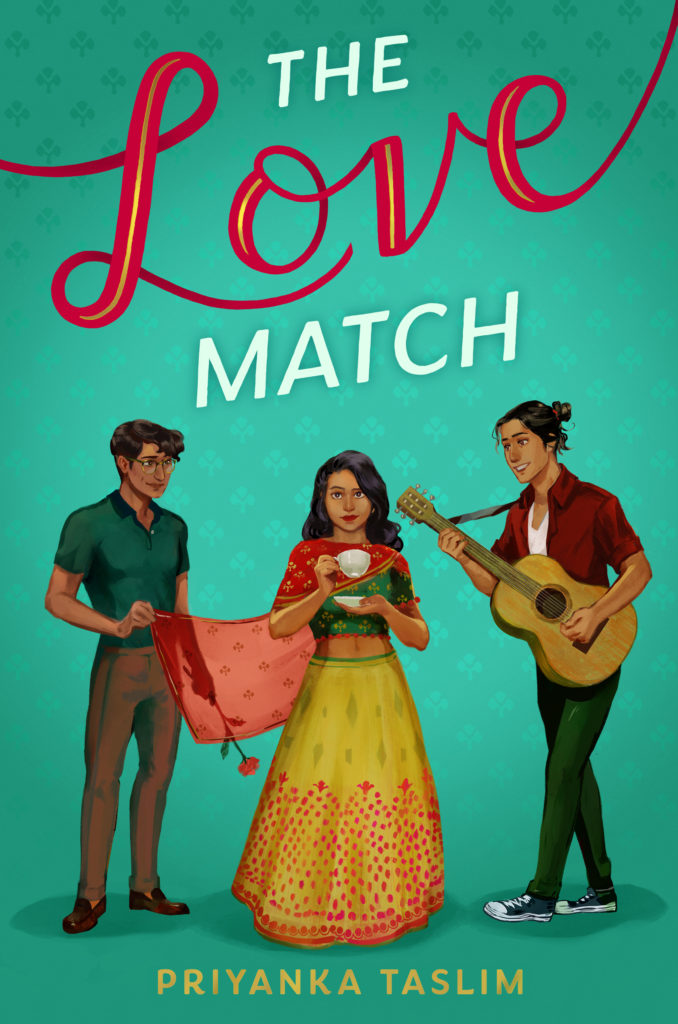
Here at Geeks OUT we’ve interviewed quite a few diaspora writers who’ve talked about the ways they’ve explored the multiple cultures that exists in their lives in their work. If you wouldn’t mind, could you talk to us about what representation means to you?
I’ve talked a bit about it already, but to me, representation is so important! Even when I escaped into the pages of a romance or a fantasy novel as a teen, they were often authored by white writers who would sometimes use subtle microaggressions that would jar me out of the story and make me wonder if that was all that was possible for someone like me, even in a made up world—to only be present to be the villain, or for the sole purpose of uplifting the white protagonist, or to die for them, or to just fade into the background.
I grew up in Paterson, which is extremely diverse. I hope that Paterson comes alive in The Love Match and feels a little like a character in its own right, because I set off to bottle just a bit of that vibrancy. The entirety of the main cast is populated with people of color, the majority of them South Asian and Muslim (and while the book explores the characters’ Bangladeshiness more than their faith, different characters have different relationships to their faith). There are also intersectional identities represented on page, like my protagonist Zahra’s best friend Dani, who is a queer Pakistani Muslim girl.
So I hope readers pick up The Love Match and know, even if the characters’ experiences might not be exactly like their own, it’s a story about brown girls deserving to be at the center of epic love stories if they want to be, about “tall, dark, and handsome” belonging to an actually brown-skinned boy for once, about an ensemble cast not needing a white character to anchor readers because themes of experiencing grief and coming of age and embracing change are universal enough even when the characters aren’t white. I hope what readers take away from that is that they’re enough too. That they’re complicated and nuanced and so many wonderful things all at once. They are more than a side character or villain in anyone else’s narrative.
Aside from your work as a writer, what would you want readers to know about you?
Honestly, I’m pretty boring! Teaching high school full time while juggling writing doesn’t leave me much time or energy for anything aside from enjoying other media… (Case in point: Abbott Elementary is very realistic, in my opinion) But readers can find me on most social media accounts under the @bhootbabe and I will provide them with cute cat pics in return!
What’s a question you haven’t been asked yet, but wish you were asked (as well as the answer to that question)?
Hmmm…maybe what recurring themes, tropes, and motifs do you find in your work? I very frequently end up writing books that center complicated families. In fact, I am working on a book right now that I sort of hate myself for, because so many characters why do I do this to myself, but when it all finally comes together and these characters leap from the pages like real, fleshed out people, when readers tell me that they loved the whole cast and felt they were written with love and nuance, I feel such a deep pride!
But in the meantime, there are many tears involved, haha. I also tend to write a lot of Tired Oldest Daughter heroines, somehow always fall headfirst into love triangles, and tackle themes like grief or pursuing ambitions.
Oh, and cats. I want mine to feel represented, haha.
What advice would you give to other aspiring writers?
Find your community. It may take some time. Not everyone is a good fit for you and your work. But having trustworthy people you can run your questions by, get feedback from, and can vent your frustrations to will help this lonely industry feel a little less daunting.
Also: you’ve got this! Don’t give up! We need your words!
Finally, what books/authors would you recommend to the readers of Geeks OUT?
I’m going to shout out some recent books by authors of color that center QPOC, which I’ve either read or are on my radar!
A MILLION TO ONE and THE DO’S AND DONUTS OF LOVE by Adiba Jaigirdar
THE LOOPHOLE by Naz Kutub
SHE IS A HAUNTING by Trang Thanh Tran
DRIZZLE, DREAMS, AND LOVESTRUCK THINGS by Maya Prasad
THE IVORY KEY duology by Akshaya Raman
FLIP THE SCRIPT by Lyla Lee
WHERE SLEEPING GIRLS LIE by Faridah Àbíké-Íyímídé
SORRY, BRO by Taleen Voskuni
DEEP IN PROVIDENCE by Riss M. Neilson
THE BRUISING OF QILWA by Naseem Jamnia
THIS IS WHY THEY HATE US by Aaron Aceves
BLOOD DEBTS by Terry J. Benton-Walker
FAKE DATES AND MOONCAKES by Sher Lee
DAUNTLESS by Elisa A. Bonnin
THE BOOKEATERS by Sunyi Dean
Header Photo Credit Prithi Taslim

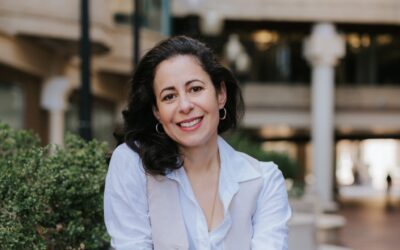
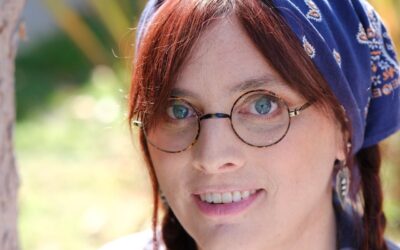

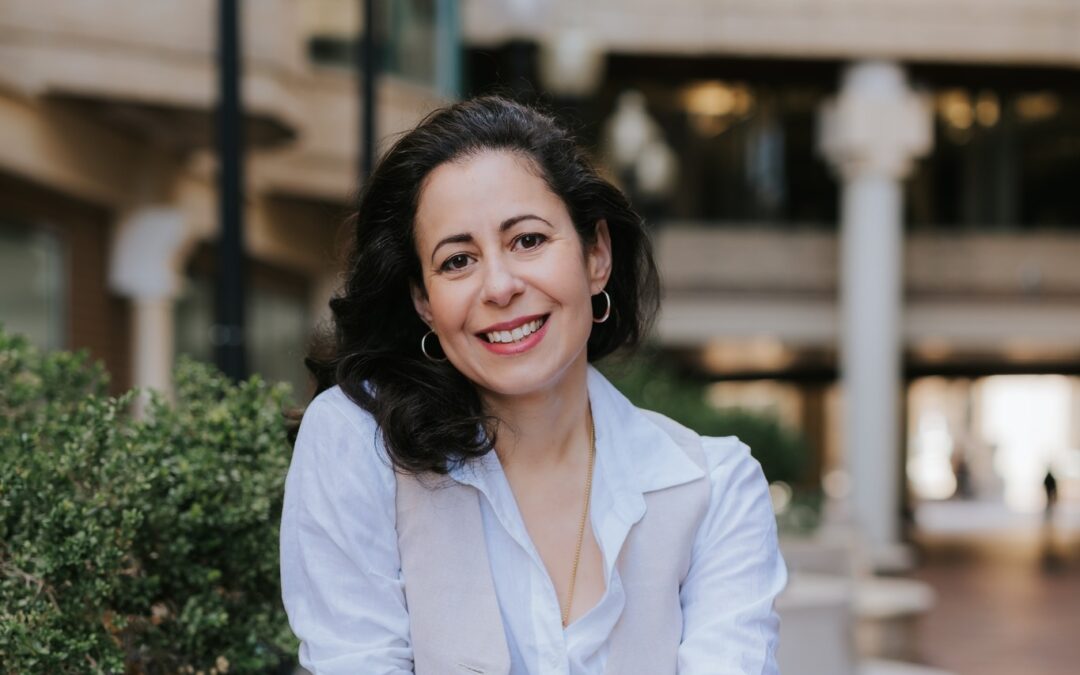
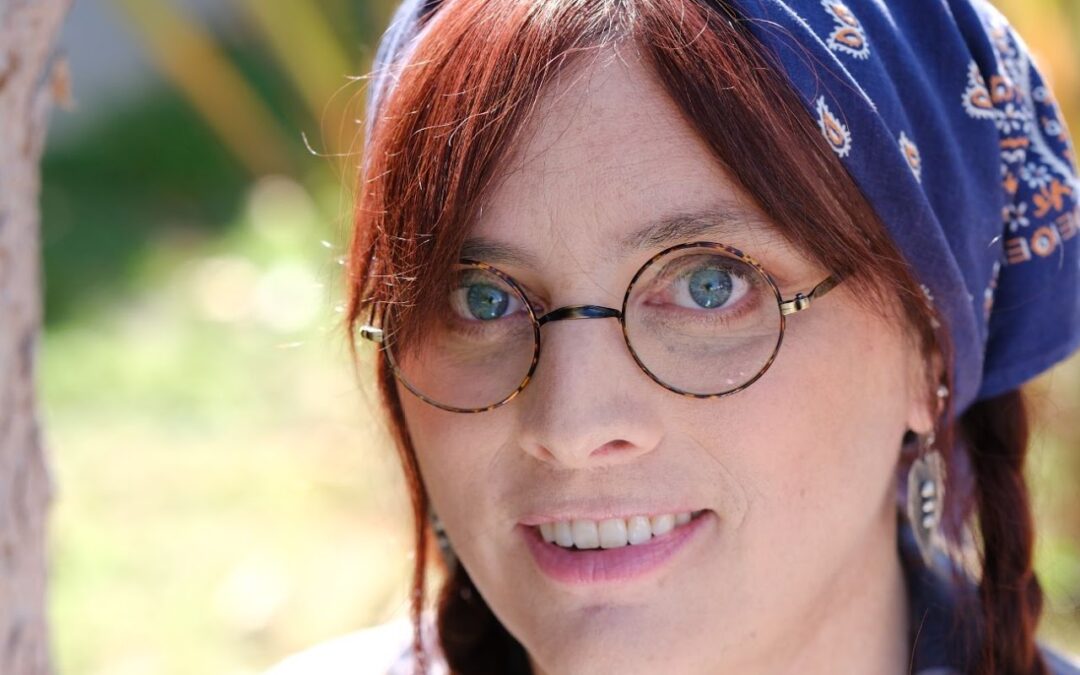

0 Comments